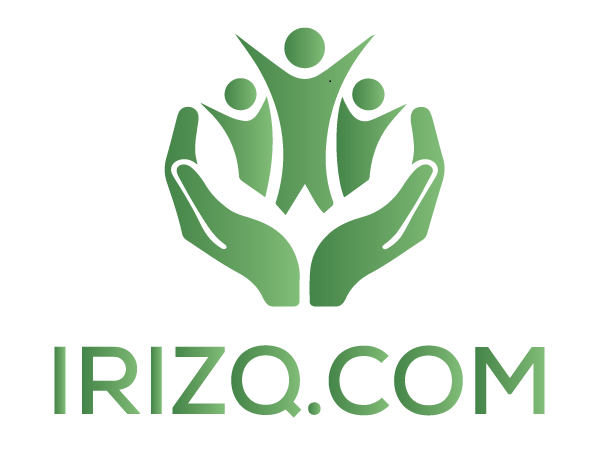Muslim entrepreneurs serve as modern-day ambassadors of Islam by embodying ethical principles, fostering community development, promoting social responsibility, and bridging cultural divides through their faith-driven business practices.
Muslim entrepreneurs play a pivotal role in shaping how the world perceives Islam and its values. They are not just business owners but also ambassadors of the faith, showcasing Islamic principles through their practices and interactions. From ethical business practices to charity, the way Muslim entrepreneurs conduct themselves reflects the teachings of Islam and can have a profound impact on their communities and beyond.
Upholding Ethical Business Practices
One of the core tenets of Islam is honesty, integrity, and fairness in all dealings. Muslim entrepreneurs are expected to follow these principles in their business ventures. They are often recognized for their commitment to fair trade, transparency, and honesty in all transactions. By ensuring their products or services are halal (permissible) and engaging in fair business practices, they set an example of the importance of ethics in the marketplace.
For instance, a Muslim-owned business will likely avoid interest (riba) and make sure that all financial dealings align with Shariah law. Such efforts promote fairness, equality, and accountability, not only within the Muslim community but also to customers and partners from various cultural backgrounds.
Contributing to the Ummah Economy
Muslim entrepreneurs are key contributors to the Ummah economy, a concept that emphasizes economic development within the Muslim community. By establishing businesses that align with Islamic values, they create opportunities for Muslims to work, invest, and consume in ways that maintain their religious and cultural integrity.
Muslim entrepreneurs also help foster a sense of community. They often reinvest in projects or organizations that benefit local Muslims, such as charitable initiatives, scholarships, or supporting Islamic schools. These efforts help create a more sustainable and thriving community, highlighting the role of entrepreneurs as catalysts for social good.
Charity and Social Responsibility
In Islam, charity (sadaqah) is an essential practice. Muslim entrepreneurs embody this principle by dedicating a portion of their profits to charitable causes. Whether it’s supporting local initiatives, providing financial help to the needy, or contributing to global humanitarian efforts, Muslim business owners actively engage in charity.
Through their businesses, Muslim entrepreneurs have the opportunity to make a significant difference. They may offer zakat (obligatory charity), support Islamic charities, or even organize fundraising events for humanitarian causes. Their businesses become a means of creating positive change in society, reflecting Islam’s emphasis on generosity and compassion.
Promoting Modesty and Islamic Values in Business
Muslim entrepreneurs are also ambassadors of modesty, which is a key value in Islam. They often incorporate modesty in their business operations, whether it’s through offering modest clothing, providing halal food, or creating businesses that serve specific needs within the Muslim community. By doing so, they uphold Islamic values while ensuring their businesses thrive.
This commitment to modesty can extend to business interactions as well. By treating all employees, partners, and customers with respect and fairness, Muslim entrepreneurs model the Islamic virtues of justice, kindness, and dignity in every aspect of their work.
Fostering Global Connections and Interfaith Understanding
As Muslim entrepreneurs engage with people from diverse backgrounds, they often serve as bridges between the Muslim world and the broader global community. By conducting themselves with professionalism, respect, and adherence to Islamic values, they help break down stereotypes and misconceptions about Muslims.
Through their businesses, they create opportunities for dialogue and understanding, proving that Muslims can contribute positively to global economies while maintaining their faith and values. They also pave the way for future generations of Muslims to take their place in various industries without compromising their religious beliefs.
Leading with Excellence and Innovation
In the spirit of ihsan (excellence), many Muslim entrepreneurs strive for the highest standards in their products and services. They bring innovation, creativity, and dedication to their industries, pushing the boundaries of what is possible while staying true to Islamic ethics.
From tech startups to fashion brands, Muslim entrepreneurs are leading the way in introducing new ideas and technologies. They are often seen as thought leaders who not only contribute to the business world but also create solutions that align with Islamic values, helping to meet the needs of both Muslims and non-Muslims.
Historical Examples of Muslim Traders Spreading Islam
Historically, Muslim traders have played an essential role in spreading Islam across the globe, long before the advent of modern communication and travel. Their business practices, interactions, and ethical conduct served as the first introduction of Islam to many regions.
The Role of Early Muslim Traders in Southeast Asia:
In the 10th century, Muslim traders from the Arabian Peninsula, Persia, and India began to travel and settle in Southeast Asia. Their presence in cities like Malacca (in present-day Malaysia), Sumatra, and Java was instrumental in the spread of Islam in the region. These traders were not only known for their honesty and fair business practices but also for their ethical conduct, which attracted local populations to learn more about Islam. Many Indonesian, Malaysian, and Filipino communities trace their conversion to Islam back to the work of these early Muslim merchants.
The Spread of Islam in Africa via Trade Routes:
Muslim merchants also traveled along the trans-Saharan trade routes, connecting North Africa to Sub-Saharan regions. Cities like Timbuktu (in modern-day Mali) became centers of Islamic scholarship and trade. Through these trade routes, Islam spread peacefully, often through the example of Muslim traders who provided services such as trading salt, gold, and other goods. The respect these traders commanded due to their ethical behavior helped spread Islamic teachings in parts of West Africa, including modern-day Nigeria, Senegal, and Ghana.
The Role of Muslim Traders in China:
During the Tang and Yuan dynasties, Muslim traders, many of whom were originally from Persia and Central Asia, introduced Islam to China. The famous Silk Road connected China to Muslim merchants, who settled and traded in cities like Xi’an and Guangzhou. Their interactions with local populations helped Islam take root in China, with many adopting the religion over time due to the trust they placed in the Muslim traders’ honest dealings.
Key takeaways
Muslim entrepreneurs are more than just business owners, they are ambassadors of Islam, spreading the core values of the faith through their actions. By conducting their businesses with integrity, responsibility, and a commitment to the community, they provide a positive example of how Islam can coexist with modern business practices. They are living proof that it is possible to succeed in the business world while remaining true to one’s faith, making a meaningful impact on both the Muslim community and society at large.
Drawing inspiration from the historical role of Muslim traders who spread Islam through their fair practices and ethical business dealings, today’s Muslim entrepreneurs can continue to serve as living ambassadors for Islam, fostering understanding, promoting ethical values, and creating opportunities for growth and collaboration.


